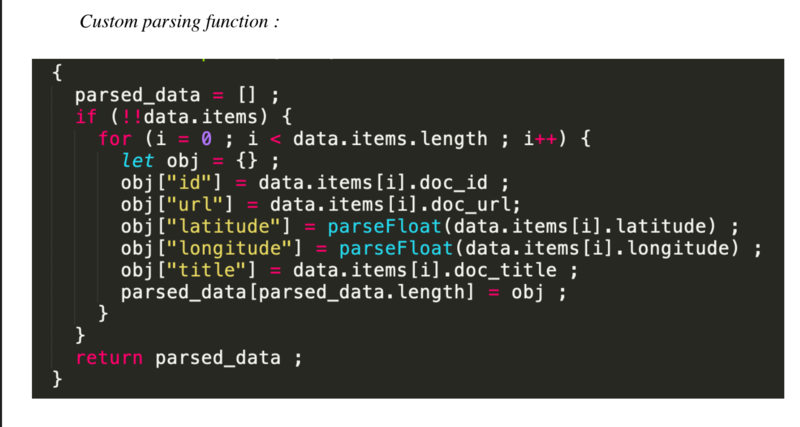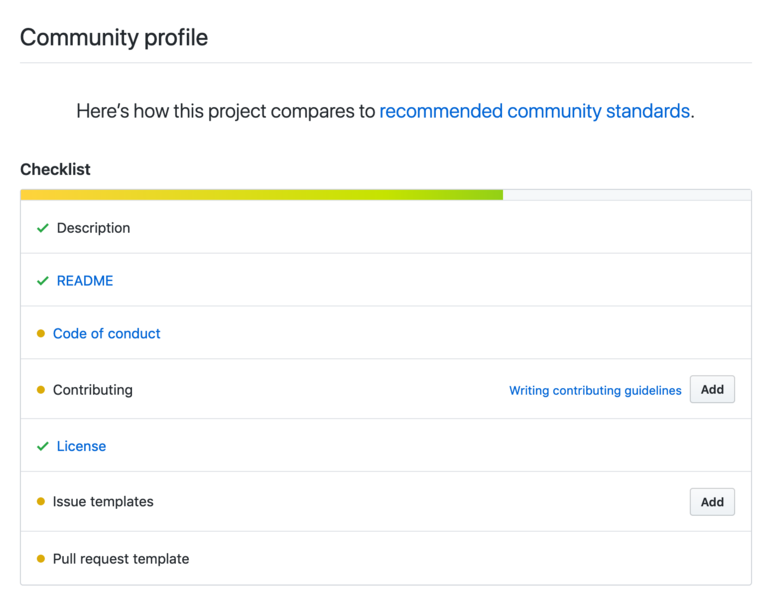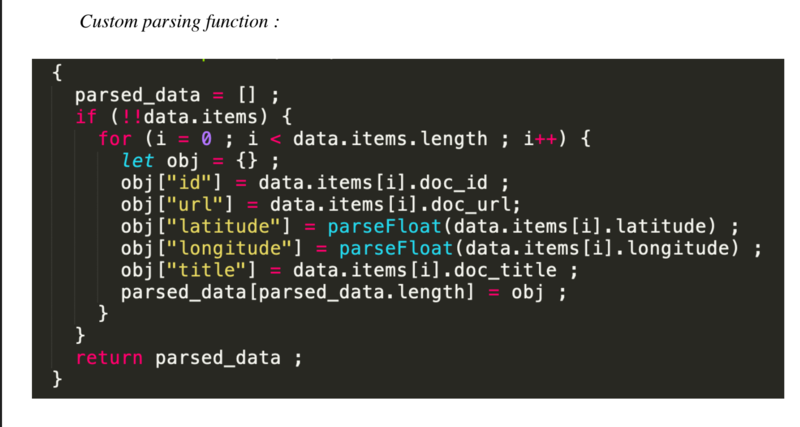About me
Name : Sagarpreet Chadha
Github : https://github.com/sagarpreet-chadha
LinkedIn : https://www.linkedin.com/in/sagarpreet-chadha-786378125/
Affiliation : Delhi Technological University , India
Location : Delhi , India
Email : chadha.sagarpreet97@gmail.com
Project Title : LEL 2.0 and work on Leaflet-Blurred Projects .
Gitter : sagarpreet-chadha
Portfolio : https://sagarpreet-chadha.github.io/
I am in my Final year studying Computer Science Engineering (BTech) from Delhi Technological University , India . Originally I am from a small village in Punjab , India but currently living in Delhi , India to complete my studies .
Project description
Abstract/summary (<20 words):
I would be working on the issues described in planning issue of **LEL **(leaflet-environmental-layers) : https://github.com/publiclab/leaflet-environmental-layers/issues/134 .
Also working simultaneously on LBL (leaflet-blurred-location) , LBLD (leaflet-blurred-location-display) and the new upcoming blurred-location project .
Problems :
Problem #1 : Architecture Problem
Currently the code has a lot of redundant code , Most of the layers have the same code in their JS files . When we add new layer , we are using the same code again with minor changes in the code like changing sourceURL , markersURL and the API_parsing function . Although the architecture is good as of now , but it is not scalable and maintainable .
Solution #1 : Using One-for-All Architecture
Let's make a generic common module which would be fully tested having all the functions implemented to add new layer . This module will be very flexible and existing layers like : Mapknitter Layer SkyTruth Layer Fractracker Layer PurpleLayer Layer Toxic Layer will be implemented by :

The architecture would be similar to that of PL.Editor where we have a generic module and all other modules are implementing that module . Also the new architecture will make sure that any new contributor while working on new layer will have to work on one single file only and not take care of the entire system . ---> Advantage :
1.) Maintainable
2.) Easy to review new layers
3.) Easily Testable
4.) Less lines of code
Problem #2 : Personal User-defined Layer
Although we have many amazing dynamic layers implemented , but their API URL is fixed . Many people on Stackoverflow and Github have asked how to add custom layers . Currently there is no library which allows users to add their own custom layer .
Solution #2 : Add Custom Layer module
We have already implemented similar feature in LBLD to add custom API with custom parsing function .

Problem #3 : Lack of Contributors
Currently there are a very few people working on LEL .
Solution #3 : Let's build a community !

I feel LEL has the potential to welcome many new first-time contributors . Let's make the documentation of how to add a new layer so easy and well structured that a new contributor can start work immediately . I will be working on making new well-defined first-timer-only issues during the course of the summer , describing each step of the process concisely . Also let's complete this checklist on Github :

Problem #4 : Segregate UI code
Currently all the UI code is in the index.html . Also we have not provided any provision to add Layers button on the map in the library . To add the Layers button , one needs to understand additional code .
Solution #4 : Build UI module
Let's make a provision in the library to automatically give the end user the layers button . I will implement a UI module for this purpose with function :

Problem #5 : Testing
We do not have any tests yet . I will be focussing majorly on testing the generic module first and then UI module part . Then moving on to testing individual layers . Also after implementations of this new tests , we can request first-timer contributors to write tests as well when they implement new layer module .
I have experience with using grunt-contrib-jasmine library and have implemented
testing in LBLD and blurred-location projects of Public Lab .
Timeline/milestones
I would be working first on the structural issues . Then moving to the UI issues and finally the testing part . I would be following this planning issue : https://github.com/publiclab/leaflet-environmental-layers/issues/134
• 27th May to 23rd June: Working on the structural changes :
- Week 1 and 2 :
- 1.) Consolidation and standardisation of all layers
- 2.) Reduction of redundant layer code
- 3.) Code to make adding new layers of a generic type easier
- Week 3 and 4 :
- 1.) improved layer management system with bounding boxes + zooms from layer metadata (including #117)
- 2.) layer metadata -- description, source, docs for each, relevant bounding box and zoom levels, version, in a single file. Maybe rate limits too if we know them .
• 24th June to 28th June: Evaluations • 29th June to 21st July: UI Work
- Week 1 and 2 :
- 1.) UI for highlighting new layers in current viewport as you drag/zoom #133
- 2.) improved popup content, like thumbnail images if they exist: #112
- 3.) unique-id based layer toggling in URL hash - related to #33
- 4.) standardisation of per-item popover UI (image, description, source, toggle, link)
- 5.) legends for some layers (#103)
- Week 3 :
- 1.) examples for how to enable/disable layers from javascript (i.e. from a separate button or checkbox for example)
- 2.) examples for how to open the map at a given location and zoom level using URL hashes: https://github.com/mlevans/leaflet-hash
- 3.) search for a location to recenter upon with a button and autocomplete geocoder (like at https://github.com/publiclab/leaflet-blurred-location)
- 4.) minimal 'dots' ui #123 .
• 22nd July to 26th July: Evaluations
• 27th July to 25th August :
1.) Testing
2.) Documentation
3.) Making PR template
4.) Making awesome first-timers-only issue .
Needs
All the resources I will be requiring are on the internet . And I would of course require the guidance of my mentor.
Experience
I have been part of PublicLab for approximately 2 years now . I had the privilege to work on LEL the previous summer under GSoC program . I also have worked on various other projects of PublicLab including plots2 , LBL , LBLD , BL , LEL and PL.Editor .
Teamwork
Throughout my academic career , I have been consistently praised as focused by my professors and peers . While working on academic and extracurricular projects , I have developed proven leadership , technical , and teamwork skills . I like to work in a team and have developed various projects with my college mates . Also as i am a regular hackathon participant , i have the experience of working in a team .
Passion
Belonging from a place having fresh air , pure water and green environment , and currently living in one of the most polluted city in the world - Delhi , Yes Public Lab interests me a lot and i wish to be the part of the PublicLab family for a very long time .
As Larry Page once said- "If you're changing the world, you're working on important things. You're excited to get up in the morning ."
Cheers to Contributors and to people using LEL :P
There is increase in people contributing to LEL on github . Also the number of stars on github has also increased .
There is sudden increase in weekly downloads of LEL on NPM as well :
Commitment
I can assure you that if i get selected to work with Public Lab this summer , I will definitely try my level best to make this project successful and will love to continue working with Public Lab even after the summer .
_
_
I would like to thank @warren , @stevie , @liz and PL community for constant support and help .
THANK YOU ALL !
Sagarpreet Chadha
__

11 Comments
Hi everyone ,
I would like to take input from the community to give suggestions on how we can improve the use of Leaflet-environmental-layers and Leaflet-blurred-location (which will be soon live on plots2) library .
I would like to work on these inputs in the coming summer.
Thank you 😃 !
Reply to this comment...
Log in to comment
Hi, Sagarpreet, thank you!
You've done some great work on various Leaflet libraries and I love it. For this proposal, I wanted to suggest that you place extra emphasis on a few things:
addLayeror something? Things like that which make the libraries extensible and readable.Thank you!!!
Is this a question? Click here to post it to the Questions page.
Reply to this comment...
Log in to comment
Problem #1 : Architecture Problem
Currently the code has a lot of redundant code , Most of the layers have the same code in their JS files . When we add new layer , we are using the same code again with minor changes in the code like changing sourceURL , markersURL and the API_parsing function . Although the architecture is good as of now , but it is not scalable and maintainable .
Solution #1 : Using One-for-All Architecture
Let’s make a generic common module which would be fully tested having all the functions implemented to add new layer . This module will be very flexible and existing layers like : Mapknitter Layer SkyTruth Layer Fractracker Layer PurpleLayer Layer Toxic Layer will be implemented by :
The architecture would be similar to that of PL.Editor where we have a generic module and all other modules are implementing that module . Also the new architecture will make sure that any new contributor while working on new layer will have to work on one single file only and not take care of the entire system . —> Advantage : 1.) Maintainable 2.) Easy to review new layers 3.) Easily Testable 4.) Less lines of code
Problem #2 : Personal User-defined Layer
Although we have many amazing dynamic layers implemented , but their API URL is fixed . Many people on Stackoverflow and Github have asked how to add custom layers . Currently there is no library which allows users to add their own custom layer .
Solution #2 : Add Custom Layer module
We have already implemented similar feature in LBLD to add custom API with custom parsing function .
Problem #3 : Lack of Contributors
Currently there are a very few people working on LEL .
Solution #3 : Let’s build a community !
I feel LEL has the potential to welcome many new first-time contributors . Let's make the documentation of how to add a new layer so easy and well structured that a new contributor can start work immediately . I will be working on making new well-defined first-timer-only issues during the course of the summer , describing each step of the process concisely . Also let’s complete this checklist on Github :
Problem #4 : Segregate UI code
Currently all the UI code is in the index.html . Also we have not provided any provision to add Layers button on the map in the library . To add the Layers button , one needs to understand additional code .
Solution #4 : Build UI module
Let’s make a provision in the library to automatically give the end user the layers button . I will implement a UI module for this purpose with function :
Problem #5 : Testing
We do not have any tests yet . I will be focussing majorly on testing the generic module first and then UI module part . Then moving on to testing individual layers . Also after implementations of this new tests , we can request first-timer contributors to write tests as well when they implement new layer module .
Reply to this comment...
Log in to comment
Hi Sagarpreet - just noting that there was an issue possibly related to a revision on this node, and I changed the
vidof the node's latest revision. I believe everything is as it was, but if you notice anything wrong please bring it to my attention. Thanks!And thank you for your detailed response; i'll be reviewing Monday i hope! Looking great!
Reply to this comment...
Log in to comment
I think when i was updating my proposal , there was some error displayed "to correct bold heading , use * correctly , etc. " , but i clicked the submit button regardless and then the spinner kept loading without sending request to server .
Now i am again not able to update my proposal .
Update : I am able to change the main image but not able to update content .
Reply to this comment...
Log in to comment
This is awesome Sagar. Please include some time for reviews, ftos and blogs in the timeline. Also it will be great if you can guide other contributors in their proposals. Thank you Sagar
Reply to this comment...
Log in to comment
oh no, Sagarpreet, can you open an issue for this? I think i saw an issue opened https://github.com/publiclab/PublicLab.Editor/issues/306 maybe it's the same one?
On Sun, Mar 17, 2019 at 3:29 AM \<notifications@publiclab.org> wrote:
Is this a question? Click here to post it to the Questions page.
Reply to this comment...
Log in to comment
Hey @warren ,
This is the link to my full proposal , kindly review it once :)
https://drive.google.com/file/d/1G_1JMFQmyrZhDnrvpXSNZjvEUWVk0R-t/view?usp=sharing
Is this a question? Click here to post it to the Questions page.
Reply to this comment...
Log in to comment
Hi @warren , @guaravano , @liz , @stevie ,
I have updated my proposal 😃 ! Kindly review 😇 .
Reply to this comment...
Log in to comment
Hi @sagarpreet, thank you! Are you now able to edit your proposal on PL.org again? Sorry i should have followed up more on that.
Overall i LOVE your plan for re-architecting. I love the idea of there being a parser component.
This is so true, and we can see how in
image-sequencerthe 'module' concept caught on so fast -- people only have to know (with good docs) how to make a module, and they can make a really substantive contribution to the library. Critical to this was making the format of each module really standard, and also easy! Few steps.Another thing I'm really looking forward to is the idea of multiple swappable UIs. The current menu UI can see some improvements like organizing by type. But the bigger UI described in https://github.com/publiclab/leaflet-environmental-layers/issues/60#issuecomment-460462757 is something we could even run in parallel at the same time. And with the right listeners, callbacks, and documentation, people may even build more different UIs for LEL. This is a big part of the project too.
However, I think it's possible that we may have more than one person working on LEL this summer! So, although I'd love to hear a little of your ideas for how the UI interfaces with the core library, implementing the bigger UI I linked to doesn't have to be a major part of your proposal necessarily.
Thanks a lot @sagarpreet! This library has grown so much and it's time to think bigger, and your additions and plans above make for a great roadmap! 😃
Is this a question? Click here to post it to the Questions page.
Reply to this comment...
Log in to comment
Hi, please upload your proposal at the Google Summer of Code website at the earliest. Please ignore this comment if already done.
Reply to this comment...
Log in to comment
Login to comment.